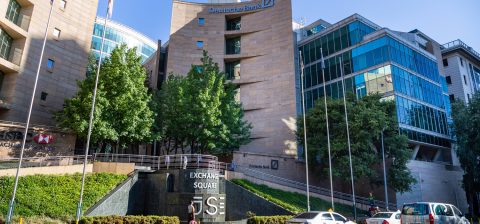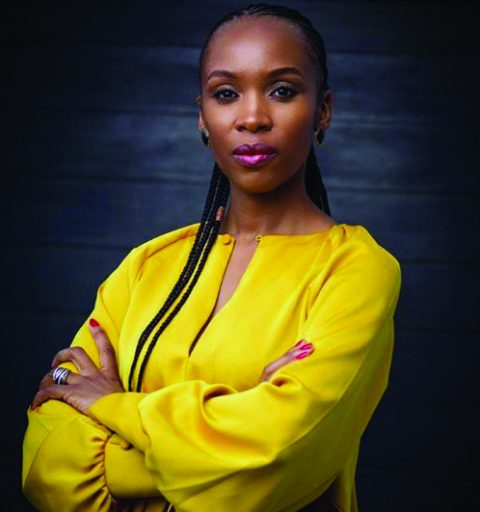Sunday Times Green
Sense Or Sensibility?
Corporate rhetoric about being vested in sustainability as “the right thing to do” may be monotonous, yet it remains valid. Today’s sustainability reports, however, are about more than just reducing a carbon footprint or using more efficient equipment. Investors and the public want more: more transparency, more conviction and more lasting impacts, be those societal or environmental.
How to measure those impacts is the problem. Green sustainability generally skews profitability graphs somewhat, given that a return on investment from this perspective is difficult to quantify.
“What underpins the sustainability dilemma is the way economic returns have traditionally been measured,” says Shameela Ebrahim, the senior manager of group strategy and sustainability of the Johannesburg Stock Exchange’s (JSE).
“Financial returns alone largely discount the impact businesses have on the environment and society by only following a financial growth model. This did not provide a measure of how they create value holistically or for that matter, destroy value by their existence.”
Over time there has been an increase in the realisation of the need for good governance when it comes to maintaining sustainability strategies, and this is one of the major reasons why the JSE has mandated compliance with the King Codes of corporate governance – usually referred to as King IV – as a listing requirement. Listed companies have to report annually on an “apply and explain” basis how they have applied the various principles of King IV.
“King IV explicitly mentions sustainable development and what information companies should be considering and disclosing within the ambit of the triple context of economy, society and the environment,” says Ebrahim. “This is critical to informing investors of the value the company adds to society at large.
“As a regulator the JSE has an obligation to protect investors by guiding companies in how to apply good governance and disclosure practices thereby allowing for better risk management of their business and for investors.”
This at least gives some perspective of the “unquantifiable” when it comes to sustainable business practices, but the JSE has taken it further with the introduction of the FTSE/JSE Responsible Investment Index, which measures the way companies embrace environmental, social and governance (ESG) goals. While participation is not mandatory, the index has served to improve and encourage ESG disclosure with many companies considering it as aspirational, says Ebrahim.
Internal frameworks
Meeting sustainable goals doesn’t mean abandoning efforts to make a profit, and often the two are mutually inclusive. The JSE allows listed firms to raise capital for projects that meet “positive environmental and/or climate benefit” mandates (and are independently reviewed to do so) with special “green bonds”. These are designed to attract investors who wish to ensure their money is spent in particular ways but are backed by the full balance sheet of the issuer.
In other words, if a specific “green” project fails, purchasers of green bonds won’t be punished for it.
Growthpoint Properties owns the largest portfolio of green-certified commercial buildings in South Africa and is the first corporate to issue a green bond on the JSE. Dirkje Bouma, group treasurer of the property conglomerate, confirms that “the increasing inclusion of environmental considerations in our operations help us to do business better”.
“By highlighting our green DNA through the issue of a green bond, we had significant interest from investors, particularly the domestic fixed income environment,” Bouma say. “A niche international investor, with a specific mandate to support local currency green bonds issued in Africa, also availed.”
The Growthpoint Green Bond raised R1.1-billion, which was allocated to re-financing five recently completed green buildings, which are rated by the Green Building Council South Africa (GBCSA). Auditors that provide a pre- and post-issuance report on the procedures and application of the proceeds enhance the transparency of the model.
“As investors need to report back to their trustees on the ESG elements of their investment, the green Bbnd helps to tick the boxes squarely from an environmental aspect,” Bouma says.
The fact that a green bond and a Top 30 Responsible Investment Index even exists is compelling evidence in support of sustainable green business practices, and provided the motive is honorable, customers and investors will reciprocate. Sustainability is what drives markets and keeps them relevant today.
In South Africa, rules around corporate social responsibility are stricter than in many other countries, but many firms in the JSE all share index are working to go beyond
mere compliance. Clicks, one of the Top 30 in the index, has adopted the principles contained within the frameworks of the UN Global Compact, the International Labour Organisation and the Organisation for Economic Co-operation and Development, all of which support the economic and social wellbeing of people.
“We have actually moved beyond a narrow focus on legislative and regulatory compliance to embedding environmental management into our strategic and operational planning processes,” says Bertina Engelbrecht, human resources director of Clicks.
“We recognise that for the business to be sustainable in accordance with our values and vision, the business must grow in a manner that delivers a positive social impact with reduced demands on the environment,” Engelbrecht continues.
What companies have to consider is not whether sustainability is hugely profitable, but rather if it’s worth the risk of doing nothing? Corporates are under closer scrutiny than ever, with more and more scandals around bad governance in domestic companies and multinationals hitting the headlines every day. A good and provable record when it comes to sustainability and environmental issues could be the make or break for consumer trust, and that’s always a profitable decision.






 Sign-up and receive the Business Media MAGS newsletter OR SA Mining newsletter straight to your inbox.
Sign-up and receive the Business Media MAGS newsletter OR SA Mining newsletter straight to your inbox.